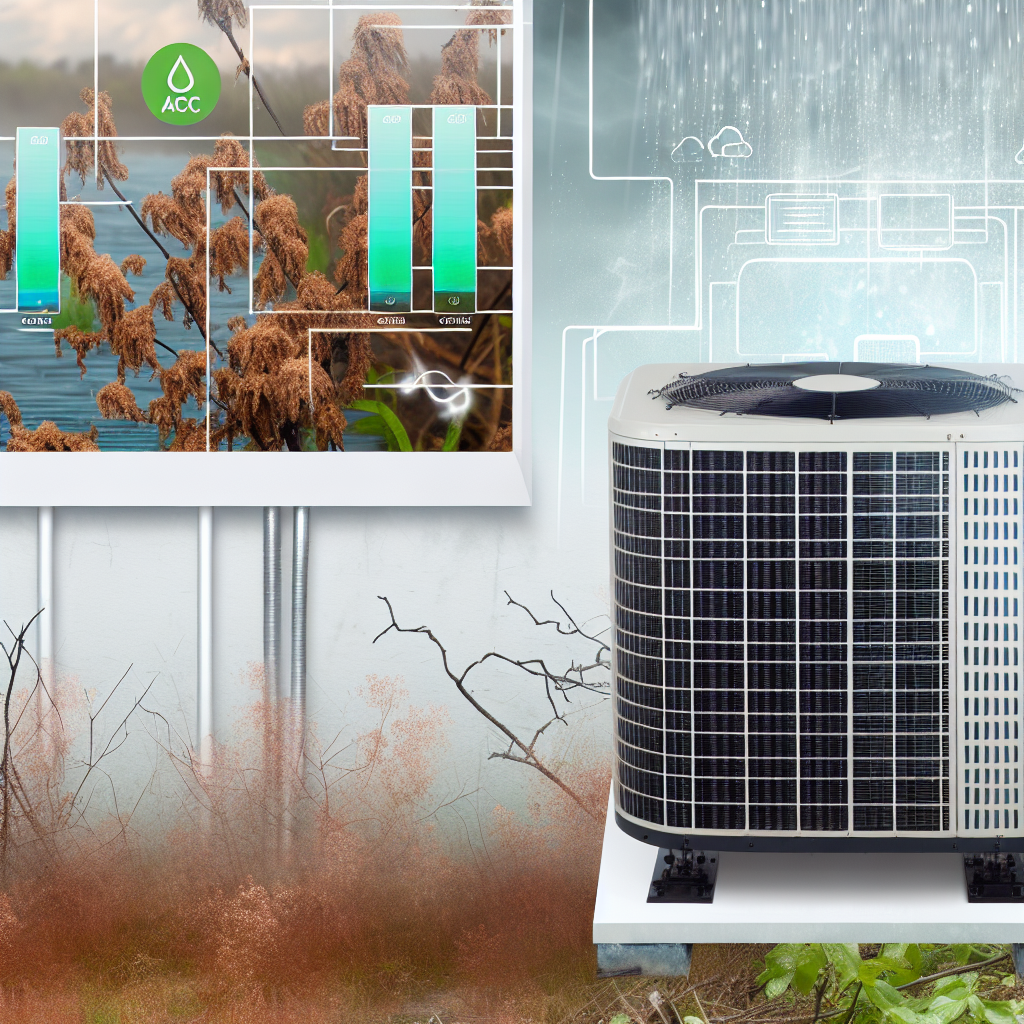Published: Apr 25, 2025

When it comes to the environmental impact of our daily lives, we often think about things like recycling, reducing waste, or conserving water. However, one aspect that is sometimes overlooked is the impact of our HVAC (Heating, Ventilation, and Air Conditioning) systems on the environment.
HVAC systems play a significant role in the energy consumption of residential buildings. Inefficient HVAC units can contribute to higher energy consumption, leading to increased greenhouse gas emissions. According to the U.S. Energy Information Administration, residential buildings account for about 20% of total energy consumption in the United States, with heating and cooling being the largest energy expenses.
By upgrading to a more energy-efficient HVAC system, homeowners can reduce their carbon footprint and lower their energy bills. Energy-efficient HVAC units use less electricity to operate, leading to decreased energy consumption and lower greenhouse gas emissions. Additionally, many utility companies offer rebates or incentives for installing energy-efficient HVAC systems, making it a financially savvy choice for homeowners.
Another environmental concern related to HVAC systems is the leakage of refrigerants. Older HVAC units may still use refrigerants such as R-22, which is known to deplete the ozone layer and contribute to global warming. When these refrigerants leak into the atmosphere, they have a harmful impact on the environment.
To address this issue, it is essential to properly maintain and service HVAC systems to prevent refrigerant leaks. Regular maintenance by a professional HVAC technician can help detect and repair any leaks, as well as ensure that the system is operating efficiently. In some cases, it may be necessary to retrofit or replace older HVAC units with those that use more environmentally-friendly refrigerants.
In addition to upgrading to energy-efficient systems and preventing refrigerant leaks, there are other sustainable practices that homeowners can adopt to minimize the environmental impact of their HVAC systems. These include:
By incorporating these sustainable practices into their HVAC maintenance routine, homeowners can contribute to a healthier environment and lower their carbon footprint.
In conclusion, the environmental impact of HVAC systems is a significant consideration for homeowners looking to reduce their carbon footprint and contribute to a sustainable future. By upgrading to energy-efficient systems, preventing refrigerant leaks, and adopting sustainable practices, homeowners can make a positive impact on the environment while also enjoying cost savings on their energy bills.
Remember, taking care of your HVAC system not only benefits your comfort and wallet but also plays a crucial role in protecting the planet for future generations.

Our expert technicians are ready to assist you 24/7!
Contact Us Today!Read our latest articles for helpful information about heating, cooling, and air quality.
Regular HVAC maintenance is essential for improving energy efficiency, extending the lifespan of your system, enhancing...
Read MoreImplement these 10 tips to enhance the air quality in your home, promoting a healthier living environment for you and y...
Read MoreRegular seasonal HVAC maintenance is essential for maximizing system efficiency, ensuring indoor air quality, preventing...
Read MoreSmart thermostats offer energy savings, convenience, learning capabilities, and integration with smart home systems, mak...
Read More